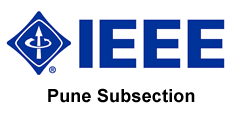This article, which has advice for students who plan to do a degree in Engineering, has been posted here on PuneTech, partially in response to some of the comments we’re getting for this PuneTech article, and also partially because I’m sure most PuneTech readers get asked this question by relatives and friends, and I’m hoping that at least some of the advice here will be helpful
If you’ve just finished your 12th standard, and are interested in getting an Engineering degree, which college, and which branch of Engineering to choose can seem like the most difficult, and at the same time, the most important decision of your life. People have been asking me this question for almost 20 years now, and based on my varied experience, here is the advice that I give to prospective engineers.
I can distill my advice down to this sentence:
Get into the best college (in a good city) that you can – whatever the branch.
I’ll explain in a little more detail.
Branch is not all that important
Other articles in this series
If you find this topic interesting, you probably would be interested in these other articles I’ve written:
- Should you send your kid to study abroad in the US after 12th std?
- How I studied for IIT-JEE
- Should you encourage your child to take a gap year before college?
- My Gap Year After 12th – by Nishchala Bhandari
- After 12th Please send your child away from home – preferably a hostel
- Quitting Engineering
- If your child is unsure of what to do after 12th, consider Liberal Arts
That’s right. Most students and parents seem to be very focused on getting in to the “best” branch (Computer Science, Electronics & Telecommunications, Mechanical, Chemical, Civil, etc.) Everybody wants to get into the “top” branch. Everybody wants to know which branch has the best “scope” in the future.
This is misguided. There are a number of reasons why the branch doesn’t matter all that much:
- If you study in a good college, all branches have “scope”. There are successful businesses and well-paying jobs in all disciplines, including civil engineering, and chemical engineering. And the vast majority of computer science graduates in the country do not have decent jobs (because there are so many of them!) If you study in a bad college, a good branch is not going to help you. Also, so called “good” branches with lots of “scope” tend to be over-crowded, because everyone is entering that field. And finally, nobody really knows which branch will have the most “scope” 10 years from now. (When I did my Engineering, my friends took Computer Science in VJTI because they couldn’t get into more sought after branches like E&TC and Mechanical!)
- Changing of field is very common amongst engineers. Just looking at my batchmates, I know metallurgical engineers who are in advertising agencies, mechanical engineers who are into banking and finance, chemical engineers working on Bollywood movies, and computer scientists in the insurance industry doing non-computer stuff. What branch you get your degree in is forgotten within 5 years of graduating.
- What branch the student is interested in, is irrelevant. This is a big one. 12th standard students tell me, “I am more interested in Computers. I don’t like Mechanical.” Frankly, in 12th standard, you have no clue what any particular field involves. If for a field, hundreds of colleges in the country are giving engineering degrees in that field, then almost by definition, that field has interesting and cool work going on all over the world. If you find that field boring, then, the most likely explanation is that you’ve been taught that subject by a bad teacher. My guess would be this: any subject that you find very interesting was probably taught to you by a good teacher, and for every boring subject, there’s probably a bad teacher of that subject sometime in your past. A good professor in any branch can make the branch come alive for you.
I am not asking you to ignore the branch entirely. All I’m saying is that give it a little less importance than you are currently giving it.
College does matter
The original IITs, and BITs Pilani, are clearly better than other engineering colleges. Most NITs are better than most state engineering colleges (except the top state colleges). Top state colleges (e.g. COEP, VJTI, PICT) are clearly better than the second-tier engineering colleges. And so on. (Unfortunately, I don’t really know how good or bad the new IITs are. You’ll need to make that judgement on your own.)
It’s fashionable to say the college doesn’t matter. And it is very common to trot out examples of students from terrible colleges who have succeeded in life. But that’s flawed logic. Students who succeed inspite of being in a bad college, are probably succeeding in spite of the college, not because of the college. And probably would have done even better if they had been in a better college.
Better colleges have better systems of education, better professors, and better “resume value” (which, whether you like it or not, is a factor for a long, long time.) Also, in better colleges, you have better classmates. This matters in the short term (because better classmates means more influence of friends who are interested in the right things), and the long term (better “network”).
So, here’s my (controversial) advice: if you are getting a not-so-good branch in a very good college, vs. a good branch in a not-so-good college, you should definitely choose the not-so-good branch in the very good college. I would definitely pick Metallurgical Engineering in IIT-Bombay, over Computer Science in MIT. If the colleges are sort-of-comparable, then go for the “better” branch (for whatever definition of “better”). For example, if you have Mechanical Engineering in COEP, and Computer Science in VIT, then go for VIT – because althought COEP is better than VIT, it is not all that much better.
Note: I am not saying that you’re screwed if you get into a bad college. There are enough examples to prove that good, motivated students can shine from anywhere. All I’m saying is that if you have a choice, then choose better college over better branch. If you get into a bad college, then work hard, ignore your professors, and try to get guides/mentors/projects from industry (right away, not just in the last year).
City also matters
To a large extent, success in life is not simply about academic knowledge. It is also about a whole bunch of other factors – what we call “exposure”. This involves all kinds of things – like interactions with industry, various (non-academic) activities that you indulge in in a city, seeing the various interesting and different things that people are doing in the city, opportunities of getting involved in various initiatives, and generally “smartness” (as in “The Bombay exposure has really made him smart.”)
So, doing a degree in Pune or Bombay, is, in my opinion, clearly better than doing it in a college in Amravati.
Also, please get out of your parents’ house. Stay in a hostel, or a rented flat with a bunch of your classmates, or something. That will propel you into the real world, give you some maturity, and the ability to deal with all kinds of issues that you need to deal with, when you are no longer staying under a protective cover provided by your parents. This is an important part of your education at this stage.
Engineering vs other fields of study
Frankly, I am not qualified to give advice on whether you should do Engineering or something else. If you find that you’re interested in some “alternate” career (e.g. photography, movies, music, art, design, whatever), here are some thoughts that you might find helpful:
- Try to find out which are the top institutes in the country where you can get a degree or certificate or whatever it is that helps with learn the field that you’re interested in. Then find out what it takes to get admission to that institute and how much it costs. And then make a detailed plan as to how you could actually do it. This will significantly improve the chances that you’ll be allowed to do it, and also that you’ll succeed in your chosen career. I would love to see more and more students in India follow this path.
- If you can’t get into one of the top institutes, maybe you should listen to your parents? It’s difficult to justify a risky career move on the basis of a mediocre education in that field.
- I find that most students who claim to be interested in such alternate careers are too lazy to actually do the work needed to create the plan mentioned in the first bullet-point. If you’re one of those lazy bums, then you don’t really deserve to follow your so-called chosen career. Give up, and do whatever stupid engineering degree that your parents want you to do. Alternative career paths are for people who are really passionate and are willing to put in the hard work it takes to succeed.
- If you are not really sure of what alternate career you want to pursue, but just have a vague notion that you want to do something other than Engineering, then you’re probably not ready for an alternative career yet. No point in going for a off-the-beaten-path, risky path unless you’re really passionate about something and clear about what you want. You’ll be better off with a conventional degree, until you figure out your passion.
- Medical vs. Engineering: Again, I’m not really qualified to give advice about whether you should go for engineering or Medicine. However, note: there are many students who avoid the medical side because they hate 10th or 12th std. biology. In this case, remember that doing a medical degree is not at all like 12th std. biology. So, this alone is not a good enough reason for rejecting medicine. Try to talk to, and find out more, from some real doctors what it is like to study medicine. You should consider medicine as a career, especially if you like people more than you like machines or software programs. If you’re not good at maths or logic, engineering is not for you.
Conclusion
If you disagree with me, please leave a comment below, with supporting arguments, and we can discuss.
If you know a 12th std student who could benefit from this article (or the discussion in the comments), please mail them this link.
Some of this advice is also applicable to engineering graduates who are planning on going abroad for a Masters degree. I’m planning on writing a detailed article specifically covering that case – issues to consider when applying for a Masters in the US. I’ll write that article one of these days – so make sure you’re subscribed to PuneTech, so you don’t miss it.
Updates
(After this post was published, readers posted a number of interesting, insightful and detailed comments. You should really read all the comments on this post, but I’ve summarized some of the important points here for the lazy folks.)
- A number of people disagree with me about whether branch matters or not. See the comments of Neeran, Dhananjay, Vikram Karve, and Rajan Chandi for more details; and also my responses to those comments. I would summarize it as: if you’re on of those well-informed students who really know what branch they find interesting, then for you, branch does matter a lot.
- There appears to be a lot of support for the “get out of your parents house; stay in a hostel/flat” directive. Parents and students, both, please heed this advice.
- Amit has posted a list of non-IIT, Indian colleges that he considers “good”, based on his experience of hiring people from various colleges, and seeing how they performed. (Note however, the purpose of this article is not really to produce a ranking of colleges – that is too controversial and subjective. Form your own impressions of the quality of various colleges (from whatever sources you can), and then use the advice in this article to decide how to choose between those colleges.)
- Ajay Garg points out that if you really need all kinds of details about engineering admissions (like lists of colleges, branches, cut-off marks, etc.) then go2engineering.com is a great site
Update 2: If you’ve cleared the IIT-JEE and are wondering which IIT to join, and which branch to choose, and whether to go for an IIT or NIT, this article by Prof. Dheeraj Sanghi of IIT-Kanpur might help. He updates it every year.
Update 3: All commentors who’re asking me about whether to choose college A or college B – Sorry, I have not really bothered to keep track of rankings and quality of colleges. So, the judgement about whether a college is significantly better than another college needs to be done by you using other sources of information. Most importantly, all those asking me which has better scope/prospects ECE, or CS, or IT, or whatever else, you missed the whole point of the article, didn’t you? The branch does not matter. If you can’t decide, just pick whichever branch has a higher cutoff. Some experienced commentors have suggested that interests are important, and students who have a strong interest in a particular branch, should choose that branch. Well, if you did have a strong interest in one branch, then you wouldn’t be here asking a question about which branch to take. If which branch to take is not very clear to you, then you don’t have an interest in any branch, and just take the branch with the highest cutoff in the best college that you can get into.




![Reblog this post [with Zemanta]](http://img.zemanta.com/reblog_b.png?x-id=3aa643a7-8116-4855-98e7-4b383017f78d)


![Reblog this post [with Zemanta]](http://img.zemanta.com/reblog_b.png?x-id=56ff0c53-25e9-47ad-98a6-1c5f8bb392e4)

![Reblog this post [with Zemanta]](http://img.zemanta.com/reblog_b.png?x-id=2d5e63a3-14a6-40af-8a98-7ef5b6c05bb9)
 Anand’s list:
Anand’s list:![Reblog this post [with Zemanta]](http://img.zemanta.com/reblog_b.png?x-id=230622cb-fbb0-4aad-a96a-ae8902c427cb)
![Reblog this post [with Zemanta]](http://img.zemanta.com/reblog_b.png?x-id=ec46f5f8-a253-4109-8de6-badf7272cc4a)